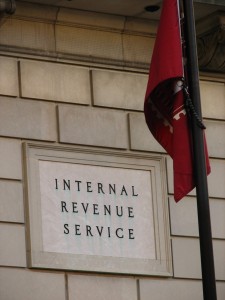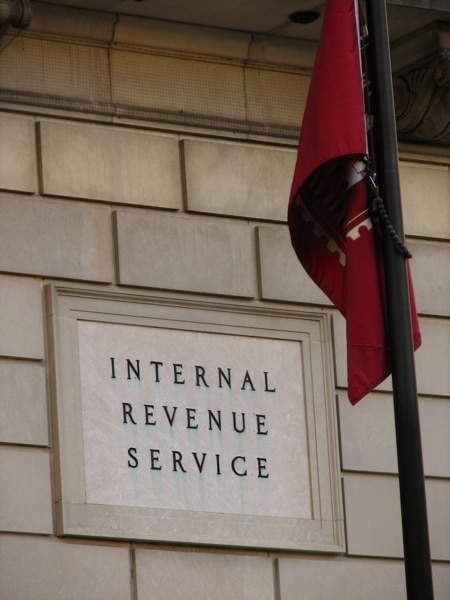
It’s the IRS office accused of unfairly scrutinizing and delaying applications for tax-exempt status from conservative political organizations like the Tea Party.
I don’t think the low-level staffers in the Determinations Unit were politically motivated. I think they were trying to deal with a mountain of work while understaffed, so they searched for keywords to aggregate applications and handle similar groups with a degree of regularity.
We’ve seen for years the unit is understaffed and struggles to keep up:
— application responses routinely take close to a year and I’ve known groups that waited months longer than that
— an online application project was delayed, and I haven’t heard about it since
— the 2011 loss of tax exempt status for 275,000 charities meant many thousands would reapply, adding monumental burden
Much is being made of the unit’s requests for donor lists, but how a group is funded has long been part of the criteria for determining whether an organization qualifies for tax-exempt status.
I’m looking at an IRS letter from 2001 confirming a client’s exempt status. The agency informs the organization that if its “sources of support, or its character, method of operations, or purposes have changed” there may be a change in the exempt status.
I predict this scandal will lead from IRS Code section 501(c)(4) to 501(c)(13):
Cemetery companies owned and operated exclusively for the benefit of their members . . .
Then we’ll learn where the bodies are buried.
Updated June 6, 2013:
IRS released these FAQs on what the Determinations Unit did and why.

Training has already been reported to be part of the solution so “this never happens again.” Such a familiar refrain after scandal.
Excellent considerations, and these have made me think in new ways. Having said that, I have seen employees of other agencies target specific groups of people for extra (unnecessary) scrutiny. In the end, power can be a corrupting influence. Being able to say you represent the United States government and that others must obey you, is a form of power. Being loyal to one political party or another can make employees more fervent in their belief “the other side” is wrong. It will be interesting to see if employee training to support objective and ethical approaches to government work are in place, and it may be that more training is needed on an ongoing basis.
The ProPublica coverage is very good, thanks, Corinne. Startling: only 8 flagged applications were denied.
ProPublica has written the most coherent explanation for the current state of affairs
(http://www.propublica.org/article/how-irs-nonprofit-division-got-so-dysfunctional ). In short, if your efforts are directed toward getting government down to the size at which it can be drowned in a bathtub, followed by a Supreme Court decision that dumps a metric ton of campaign-finance regulatory work onto a system that, on its best day, is singularly ill-suited to deal with that job, then no one should be surprised when the system collapses in on itself.
Two points to bear in mind:
1.Most of the money spent on elections by social welfare nonprofits supports Republicans. (http://www.opensecrets.org/news/reports/shadowmoney.php)
2. Some social welfare groups promised in their applications, under penalty of perjury, that they wouldn’t get involved in elections. Then they did just that. (see this: twitpic.com/csqsfk)
Congress *requires* the IRS to review every application for tax-exempt status; for these groups to claim they were victimized is ridiculous. The Inspector General’s report concluded that none of the organizations scrutinized were denied (c)(4) status. (http://www.reuters.com/article/2013/05/10/us-usa-politics-irs-idUSBRE9490S720130510)
If there’s a scandal, it’s in the abuse of the (c)(4) status, and probably the whole 501(c) section of the tax code. Another scandal is that the agency is indeed understaffed and overloaded with paperwork (http://www.publicintegrity.org/2013/05/14/12660/irs-nonprofit-division-overloaded-understaffed).
That’s an interesting take Tony. With more than 20 years experience in assisting organizations get their tax-exempt status, I have always realized that the people sitting behind the desks in the determination units were ‘guard dogs’ protecting the masters wealth and belongings from fraud and money-laundering. They are trained to look for problems and red flags and were just doing the job they’ve been trained to do. This is what they do with every application, doing their job. I’m not saying that I approve of any of this but I’m not surprised since again, they’re looking for instances of wrong-doing, fraud, and money laundering and political leanings is a red flag.
Steve, can you link to information confirming what you claim? Because everything I’ve read says Tony is right – this was a case of too few staff trying to find a way to automate and streamline their work so they could get it done. And out of 298 cases, fewer than 100 were conservative groups.
I think the bigger problem is the squishy definition of “social welfare” that allows 501 (c) 4 organizations to collect anonymous donors and use the money for strictly partisan purposes. That’s totally against the spirit of the law – though the IRS over time has degraded its own definition to leave a huge hole. Let’s plug that, get back to social welfare meaning social good not partisan politics.
It’s motivated by my feeling bad for the Determinations Unit. You are certain of the outcome. Let’s see what shakes out.
Tony, your post is based on a false premise, that the targeting and profiling of conservative groups by the IRS was based on under staffing and a rise in case load. All of this has been proven to be false. The targeting of groups based on political ideals by the IRS will be proven to have been totally politically motivated and directed by the top of the administration. It cannot be a coincidence that only conservative groups and individuals and their businesses have been targeted by the OSHA, HHS, FBI and NLRB right after sending in forms to the IRS. Is your post politically motivated?